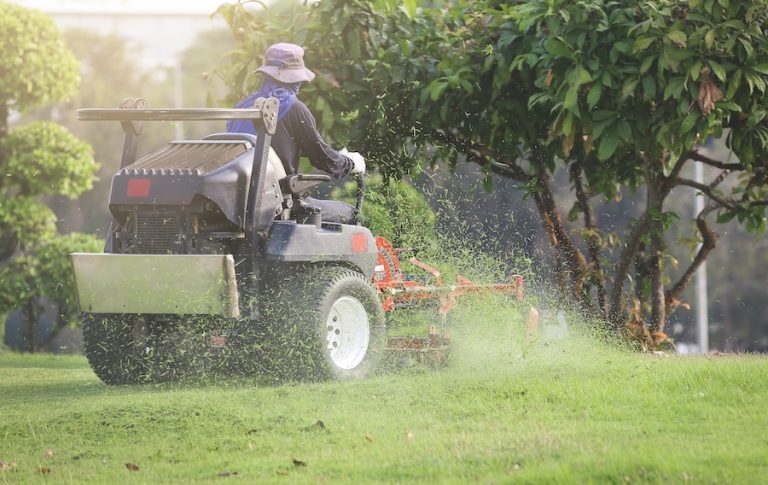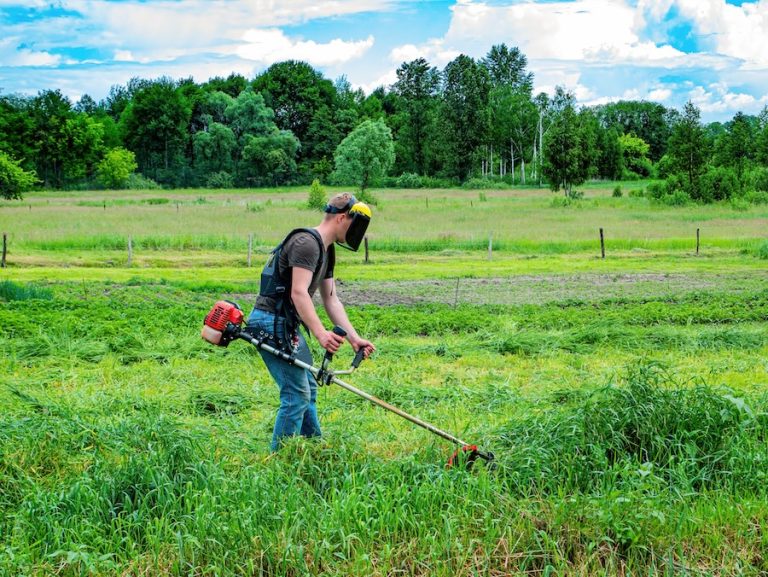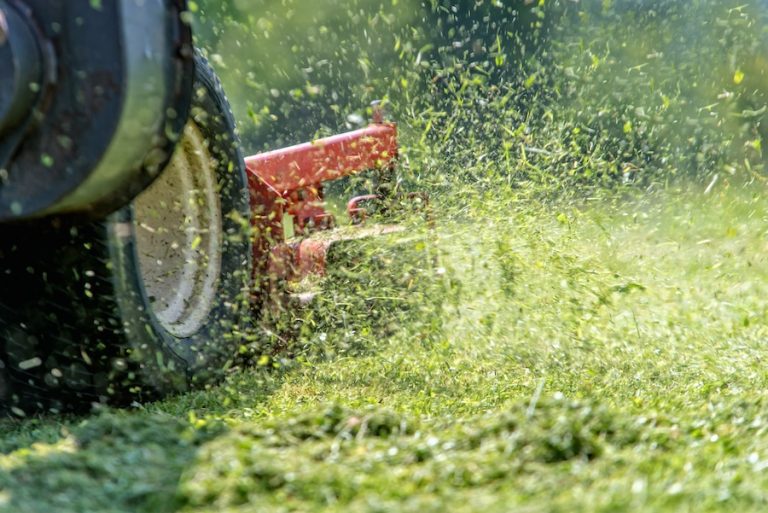Case Study: M&L Outdoor Services
- May 23, 2024
- AlexSmootCEO
- 0

Table of Contents
Our partner company, Sweat Venture, interviewed Julian and Ethan, owners of M&L Outdoor Services. Julian and Ethan launched their own lawn care & landscaping business with no experience or money, and their business is thriving today.
A lawn care & landscaping business specializes in the design, installation, and maintenance of outdoor spaces for residential, commercial, and public properties. These businesses provide expertise in garden design, lawn maintenance, planting, and hardscaping—ensuring that outdoor areas are aesthetically pleasing, functional, and sustainable. They sometimes offer additional services such as seasonal cleanups, pest control, and irrigation system installations to keep landscapes healthy throughout the year.
Are you thinking about starting a lawn care & landscaping business? If so, consider these takeaways from our interview with Julian and Ethan…
Lawn care & landscaping businesses may provide a variety of services to ensure that outdoor spaces are not only functional but also enhance the overall aesthetics and value of a property. Here is a list of the most common services offered:
- Lawn maintenance: Regular mowing, edging, and fertilizing to keep lawns healthy and attractive.
- Landscape design: Creating aesthetic and functional garden layouts, including plant selection and placement.
- Tree and shrub planting: Enhancing properties with the installation of various types of vegetation.
- Hardscaping: Building non-living features like patios, walkways, and retaining walls.
- Garden care: Weeding, pruning, and planting to maintain and enhance garden beds.
- Pest and weed control: Managing unwanted insects and plants to protect the landscape.
- Irrigation system installation and maintenance: Designing and maintaining watering systems to ensure efficient water usage.
- Seasonal cleanup: Preparing landscapes for seasonal changes, including leaf removal and garden winterizing.
- Sod installation: Laying new sod to establish or repair lawns.
- Mulching: Applying mulch to conserve moisture, improve soil health, and reduce weed growth.
- Outdoor lighting: Installing lighting to enhance the nighttime aesthetics and safety of outdoor areas.
- Water features: Creating ponds, fountains, and waterfalls for visual and auditory appeal.
- Fencing installation and repair: Erecting and maintaining barriers for privacy and security.
- Soil testing and amendment: Analyzing and improving soil conditions for optimal plant growth.
- Landscape renovations: Redesigning and upgrading existing landscapes to meet current needs or preferences.
- Emergency storm cleanup: Providing rapid response services for damage caused by weather events.
Each service is designed to ensure that outdoor spaces not only look great but also function effectively for years to come, providing clients with a serene and appealing environment.

What Equipment is Needed?
The owner of a lawn care & landscaping business might want to consider this equipment:
- Mowers and tractors: Essential for maintaining lawns, these can range from push mowers for small areas to riding mowers and tractors for larger spaces.
- Edgers and trimmers: These tools are used to keep lawn borders neat and trim grass around walkways, beds, and other hard-to-reach areas.
- Blowers: Useful for clearing leaves, grass clippings, and debris from lawns, driveways, and paths.
- Shovels, rakes, and spades: Essential for digging, moving soil, and collecting debris during landscaping projects.
- Safety equipment: This typically includes gloves, safety glasses, ear protection, and sturdy boots. Depending on the chemicals or equipment used, respirators and other protective gear may also be necessary.
- Pruning shears and loppers: Needed for trimming and shaping bushes, hedges, and small trees.
- Wheelbarrows or garden carts: Useful for moving soil, mulch, plants, and other materials around the site.
- Irrigation equipment: Components like hoses, sprinklers, and drip irrigation systems are necessary for watering tasks.
- Fertilizer and pesticide spreaders: Tools for applying chemicals and organic treatments to lawns and plants.
- Landscape fabric and stakes: Used for weed control and to stabilize certain plantings.
- Chainsaws: Important for cutting down trees or large branches.
- Utility vehicles: Optional but beneficial for transporting equipment and supplies across large properties.
- Watering cans and buckets: Essential for smaller, more precise watering needs or mixing small batches of chemicals.
- Augers: Used for drilling holes for planting trees or installing fence posts.
- Mulch and seed spreaders: For evenly distributing seeds and mulch over large areas.
Each piece of equipment is selected to ensure efficient operation and high-quality results in maintaining and beautifying outdoor spaces.

The Most Essential Project Management Skills
For a lawn care & landscaping business owner—essential project management skills are crucial to ensure that landscaping projects are completed on time, within budget, and to the satisfaction of clients. Here are the key project management skills that should be considered:
- Planning and scheduling: Ability to create detailed plans that outline project timelines, required materials, labor needs, and contingencies.
- Budget management: Skill in preparing and adhering to budgets, minimizing expenses, and maximizing resource efficiency.
- Time management: Allocating time wisely, setting realistic deadlines, and ensuring timely completion of projects.
- Quality control: Ensuring that all aspects of landscaping work meet or exceed industry standards and customer expectations.
- Team leadership and delegation: Leading a team effectively, delegating tasks appropriately, and maintaining high morale and productivity.
- Communication: Clearly conveying project goals, updates, and expectations to clients, suppliers, and team members.
- Risk management: Identifying potential risks and creating mitigation strategies to prevent project disruptions.
- Problem-solving: Quickly resolving issues that arise during the project with effective solutions.
- Contract management: Understanding and managing contracts with clients, subcontractors, and suppliers.
- Customer service: Providing excellent service to ensure customer satisfaction and build a strong reputation.
Developing these skills can lead to successful project outcomes, repeat business, and referrals—which are vital for the growth and sustainability of a lawn care & landscaping business.
How to Get Clients
To attract new clients, a lawn care & landscaping business owner should implement a marketing strategy that encompasses both digital and traditional methods. A professional website serves as the digital cornerstone of the business, while search engine optimization (SEO) increases online visibility to attract leads. Active engagement on social media platforms helps to connect with the community and showcase the business’s services and successful projects. In addition, local SEO tactics are crucial for appearing in searches for landscaping services in the area.
Online advertising, such as Google Ads and targeted social media campaigns, can reach potential customers by focusing on specific demographics and geographic locations. These efforts should complement offline strategies to cover all potential client touchpoints.
Networking with local garden centers, home improvement stores, and participation in community events can lead to valuable referrals and partnerships. Traditional marketing methods—including flyers, local garden and home magazines, and billboards—can also be effective, particularly in certain local markets.

How to Price Jobs
Pricing jobs accurately is critical for the success of a lawn care & landscaping business, and it requires a careful balance between competitive pricing and profitability. A lawn care & landscaping business owner should conduct thorough market research to understand the going rates for landscaping services in the area, which includes evaluating competitors’ prices and understanding the local economic conditions that may affect what clients are willing to pay.
The next step involves detailed cost estimation. The business owner must account for all the direct costs associated with a job—such as plants, materials, labor, equipment rental, and permits. It’s also important to include indirect costs like office expenses, insurance, and vehicle maintenance. An accurate estimate ensures the business covers its costs and achieves a desired profit margin.
Also, the pricing strategy should reflect the value provided to the customer. A business owner might consider value-based pricing for high-quality, specialized, or custom design services. Transparent pricing models can build trust with clients, so providing clear and detailed quotes can help justify the prices.
Managing a Team
Managing a team for a lawn care & landscaping business involves clear communication, effective training, and consistent monitoring of performance. Firstly—ensure your team is well-trained in customer service, safe equipment handling, and horticultural practices. Regular team meetings can be a valuable opportunity to share new information, address challenges, and reinforce company goals. It’s also crucial to foster an environment of open communication, allowing employees to feel comfortable sharing ideas or concerns.
Implementing a reward system can effectively motivate your team and acknowledge their hard work. This system could be based on individual performance, such as positive customer feedback—or team performance, such as achieving project completion targets. Rewards might include monetary bonuses, additional days off, gift cards, or simply public recognition during team meetings.
In addition, monitoring how your team handles equipment and drives company vehicles is essential—as these behaviors impact safety, operational costs, and client satisfaction. Utilizing GPS tracking can ensure that your teams are taking the most efficient routes to job sites. It can also monitor driving behavior to promote safe driving practices. Consider equipping company vehicles with dash cameras, which can be monitored via a mobile app, to further enhance safety and accountability.

How Much Will it Cost?
The cost to start a lawn care & landscaping business can vary widely based on several factors—including the scale of operations, location, and the services offered. Here’s a breakdown of potential startup costs:
- Business registration and licensing: Costs can range from a few hundred to over a thousand dollars, depending on state and local requirements.
Insurance: Initial premiums for general liability, workers’ compensation, and vehicle insurance can total several thousand dollars. - Tools and equipment: Basic tools might cost between $1,000 to $5,000, while more specialized landscaping equipment could significantly increase this expense.
- Vehicle: A reliable work truck or trailer is essential. Used vehicles might range from $10,000 to $35,000, while new ones can exceed this range.
- Maintenance and fuel for vehicles: Regular maintenance and fuel for any business vehicles are ongoing costs.
- Office space/storage: If not operating from home, leasing office or storage space can add significantly to initial costs—varying widely by location.
- Marketing and advertising: Initial marketing efforts—including website development, business cards, and signage—can range anywhere from $1,000 to $6,000.
- Technology and software: Basic software for scheduling, invoicing, and project management might cost between $100 to $500 per month.
- Payroll: If hiring employees, payroll will be a significant ongoing expense.
- Insurance premiums: Ongoing costs for insurance must be considered for budgeting.
- Materials: The cost of seeds, plants, mulch, and other landscaping materials will vary by project but is a significant part of the operational expenses.
Given these ranges, a rough estimate for starting a small to medium-sized lawn care & landscaping business could be between $15,000 to $65,000—considering some used equipment and vehicles. However—this estimate can significantly increase based on the choice to purchase new vehicles, more expensive equipment, or if starting with a larger team of employees.
It’s also important for aspiring business owners to have additional capital for operating expenses in the first few months, as it can take time to generate consistent income. Planning for these expenses in advance and having a clear budget can help in successfully launching and sustaining a new lawn care & landscaping business.
